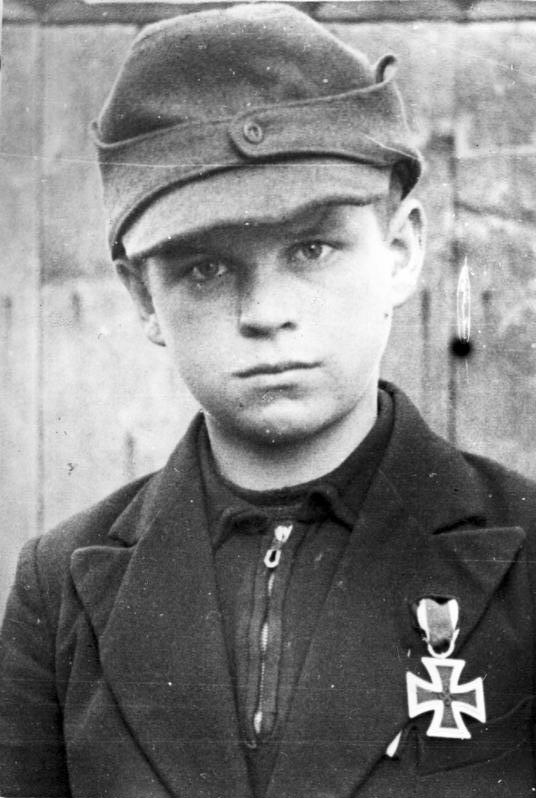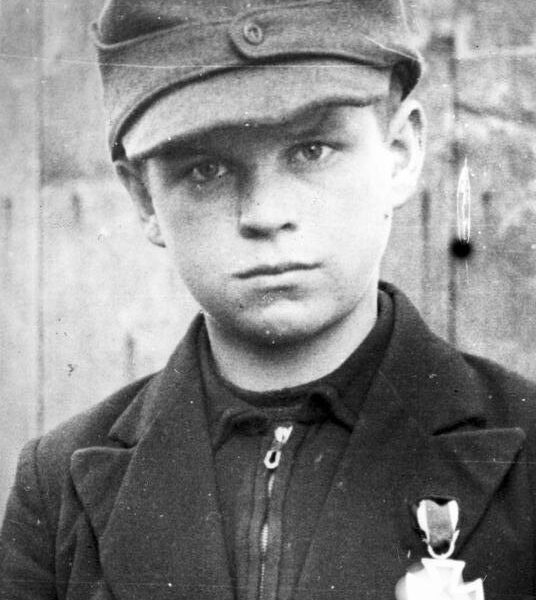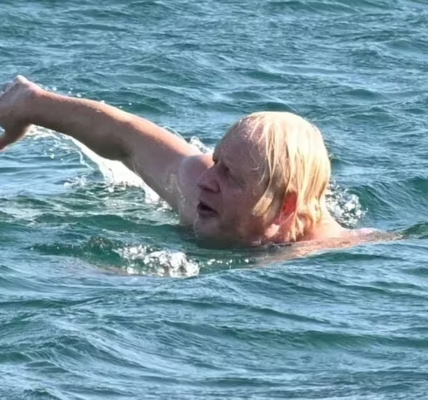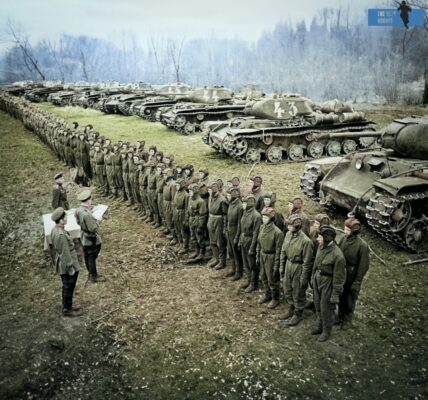At just 12 years old, he was on the front line – The incredible story of Germany’s youngest soldier _de24

He was barely older than a schoolchild when he wore a uniform and held a weapon: Alfred Zech , born in 1932 in Goldenau, Upper Silesia, is considered one of the youngest soldiers of the Second World War in Germany. His story is as harrowing as it is unbelievable – a symbol of a generation that lost its childhood in the smoke of war.

In the winter of 1945, as the war drew to a close and chaos descended upon Germany, Alfred was just twelve years old. But instead of playing with friends or attending school, he and his family were fleeing the advancing Red Army. In his small hometown, the war had already changed everything: men were at the front, houses were destroyed, and fear was a constant companion.
One day, Alfred saw wounded German soldiers lying in the street, surrounded by the sounds of war. Without hesitation, he used a horse-drawn cart to pull the injured from the danger zone and bring them to safety. For this courageous act, the young boy was invited to Berlin in March 1945 to be honored personally before Adolf Hitler. He received the Iron Cross Second Class , one of the highest military decorations of the time. In a photograph, he can be seen, small and slight, standing next to the “Führer”—his hand raised in salute, his eyes empty and serious.
This scene, now one of the most famous images from the final months of the war, depicts the full horror of that time: children being turned into soldiers. Just a few days after the ceremony, Alfred volunteered for the Wehrmacht. He was assigned to the 12th Panzer Division “Hitler Youth” —a unit composed almost entirely of teenagers.
What he experienced there remained seared into his memory for the rest of his life. The boy, who could barely carry a rifle, witnessed death, destruction, and hopelessness. He saw comrades fall, villages burn, and how the war sapped the last vestiges of strength from a nation that had long since lost.
In May 1945, Alfred Zech was captured by Soviet troops. The soldiers were astonished to find the small boy in uniform – a child barely taller than the rifle he carried. He was taken to Poland and interned in a children’s home there for several years before he was allowed to return to Germany.
After the war, Alfred led a simple life. He worked as a construction worker and later as a clerk. The past never completely left him, but he rarely spoke about it. Only many years later did he recount in interviews what he had experienced as a child. “I was too young to understand what was really happening,” he said. “I just wanted to help—and suddenly I was a soldier.”
His story reflects the final days of the Third Reich, when men were scarce and even children were mobilized. The desperate ideology of that time knew no bounds. Thousands of boys from the Hitler Youth were sent to the front – many never returned.
The fate of Alfred Zech reminds us how cruel war can be when even the innocence of youth is sacrificed. Today, he is often described as a symbol of the “lost generation”—children who were forced into uniforms to fight a hopeless war.
He died in Hildesheim in 2011 , at the age of 79. He spent his final years quietly, far from fame or remembrance. But every time the photograph of the little boy with the Iron Cross surfaces, his story is retold – as a reminder of what must never happen again.













